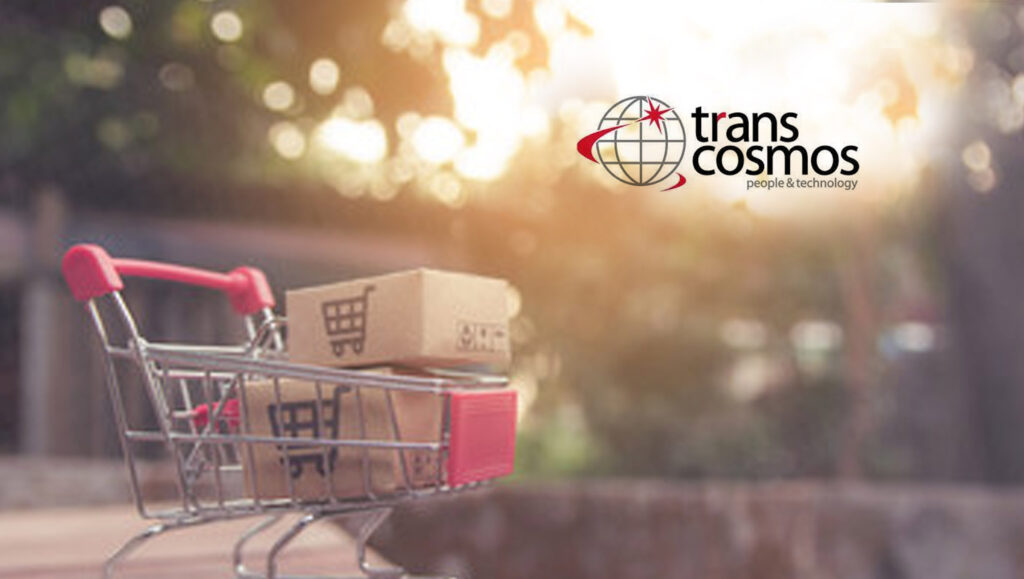Tokyo lags behind other cities in Sustainable Consumption awareness
transcosmos inc. conducted its proprietary “Global Online Shopping Survey in 8 Cities 2022” in order to gauge the current trends in consumer online shopping behavior worldwide.
Since 2018, transcosmos has been conducting its annual survey “Online Shopping Trends Survey in 10 Asian Cities.” This year the company has changed the scope, in addition to the five Asian cities from last year, Seoul (South Korea), New York (the U.S.) and London (the U.K.) have been included in the new survey. On top of the core questions asked over the years, transcosmos featured Sustainable Consumption to gauge shoppers’ environmental consciousness as well as other hot topics, such as Live Streaming E-Commerce and Cross Border E-Commerce, revealing the latest online shopping trends from a global perspective.
Read More: Transcosmos And Advanced Media Deploy The English Version Of AI Voice Assistant To Kyocera DSJ For…
An analyst in transcosmos said that this survey had clearly revealed the difference and distinctive features of consumer online shopping behavior between Asian and Western cities more than ever.
Method: Global online research panel, multilingual questionnaire (respective local language options available)
Regions: Japan (Tokyo), Soul (South Korea), Shanghai (China), India (Mumbai), Thailand (Bangkok), Jakarta (Indonesia), New York (U.S.), London (U.K.)
Respondents: Men and women aged between 10 and 49 years old that have used online shopping (made a purchase) in the past 1 year
Samples: 320 x 8 cities = Total 2,560
Period: January 17 to 24, 2022
Research agency: Cross Marketing, Inc.
■ Key findings
1. High recognition and practice of sustainable consumption among seven cities excluding Tokyo
● In response to a four-point scale question on respondents’ knowledge on, and practice of, the term sustainable consumption in their local language, more than 80% of respondents in Mumbai and Shanghai said they knew the term and over 60% said they regularly shopped sustainably.
● When asked how they consume sustainably, answers such as “I choose brands that are actively engaged in efforts to protect the environment (average of 8 cities 41%),” and “I choose brands that offer maintenance and repair services (ditto 28%)” ranked high, showing shoppers are consciously choosing eco-friendly sustainable brands. In Asian cities, “I choose energy-saving products” also received high scores.
● Despite the high degree of recognition of sustainable consumption at a global scale, 36% of the online shoppers in Tokyo said they had never heard the term, revealing that shoppers in Tokyo are significantly behind those in the other seven cities in terms of both awareness and practice of sustainable consumption.
Figure 1. Sustainability Consumption: Awareness and Practice
2. Four Asian cities are actively communicating with shops and on social media
● Online shoppers in four Asian cities, Shanghai, Mumbai, Bangkok and Jakarta, are very keen on getting greater value for the money by actively using various shopping channels, and are eager to communicate on social media and with stores, with more than 60% of respondents willing to provide their personal information so that they can receive better product recommendations.
● In New York and London, the two new cities included from this year’s survey, more than 80% of respondents said they choose products from well-known brands, and that they also place importance on an in-store pickup option. The results found that shoppers in Seoul tend to have similar preferences with those in New York and London, rather than with other Asian cities.
● Tokyo shoppers are more reluctant to use new technologies and shopping options, showing the same trends as before. Their interest in using new shopping and communication channels including online chat, live streaming e-commerce and avatar, remains low.
Read More: SalesTechStar Interview With Gordon Rapkin, CEO At Zift Solutions
Figure 2. Online Shopping Preference (percentage of respondents answered YES)
(Note) For each question, the top four cities are highlighted in pink, with the top two in dark pink shadow.
3 Cross-border e-commerce is popular in all cities, shoppers show high appetite for Japanese brands
● 50 to 70% of respondents shop via cross-border e-commerce in both asia and western cities, indicating that the channel has already taken hold on a global scale. Shanghai shoppers use Japanese e-commerce websites (33%) the most, followed by Bangkok (27%), and Jakarta (20%), whilst the usage rate stood lower than 10% in New York and London.
● On the contrary, all cities showed very high appetite for Japanese brand items via cross-border e-commerce, including New York and London with more than 60%, demonstrating huge potential for the Japanese e-commerce websites.
Figure 3. Cross-Border E-Commerce: Usage Rate and Appetite for Japanese Brands (7 cities excluding Tokyo)
“Our 2022 survey, which now includes New York, London and Seoul, has clearly revealed the difference and distinctive features of Asian and Western cities more than ever,” commented Masashi Hagihara, an analyst in Global Business Headquarters at transcosmos. “On a global scale, online chat support services and live streaming e-commerce are already used widely among consumers, much more than in Japan today. Going forward, new communication tools such as avatars will become necessary in the metaverse. In terms of cross-border e-commerce, sustainability will become a critical theme for businesses in developing new products and their brand strategies.”
- transcosmos is a trademark or registered trademark of transcosmos inc. in Japan and other countries.
- Other company names and product or service names used here are trademarks or registered trademarks of respective companies.





















